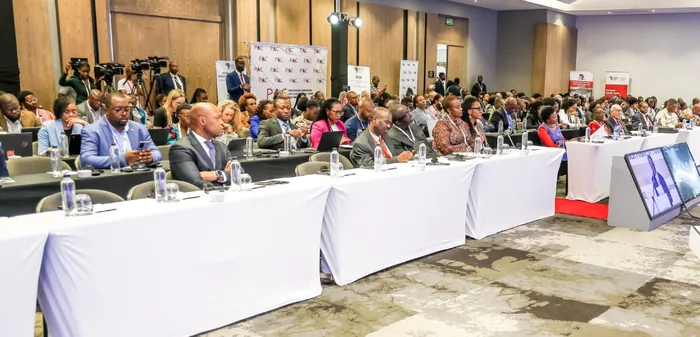Point of view: why multinational corporations must pay their fair share

At the 13th Pan-African Conference on Illicit Financial Flows and Taxation, African leaders and experts gathered to address how multinational corporations continue to drain the continent's resources through tax avoidance.
Image: Supplied.
This week, I had the honour of attending the 13th Pan-African Conference on Illicit Financial Flows and Taxation (PAC) in Sandton, a gathering that reaffirmed what many of us have long known: multinational corporations are bleeding Africa dry, and our people are paying the price.
The theme of this year’s conference, Honouring a Legacy, Building the Future, could not have been more fitting. It marked ten years since the release of the High-Level Panel (HLP) Report on Illicit Financial Flows from Africa, chaired by former President Thabo Mbeki.
That report was a watershed moment. Before its publication, most conversations around capital flight were narrowly focused on corruption and the misuse of public funds. But the HLP exposed something far more insidious, a global system designed to extract wealth from our continent under the guise of legal corporate practice.
As policy analyst, Abdallah Hamdak rightly says: “This revelation was a wake-up call for the continent. It exposed that illicit financial flows are not merely policy failures, they are symptoms of deliberate global systems that drain Africa’s wealth and limit our development.” That is the crux of the matter. These are not unfortunate oversights or accounting errors. They are calculated strategies by powerful multinationals to avoid paying tax in African countries, and the consequences are devastating.
Every rand lost to tax evasion is a rand stolen from our schools, our clinics, our roads. It is a child left without a textbook, a patient turned away from a hospital, a community denied clean water. The fight against illicit financial flows is not just about numbers; it is about justice. It is about sovereignty. It is about the future of our people.
Mandla Hadebe, executive director of the Economic Justice Network, welcomed delegates and underscored the moral imperative of the conference. “Illicit financial flows have been draining vital resources needed to build prosperous, equitable, and sustainable nations. This conference is a rallying cry for action. It reminds us that the fight against tax injustice is moral, not just technical".
He emphasised that Africa’s resources should serve the people equitably and that robust tax systems are essential for social services, infrastructure, and sustainable development. “We must forge new solutions, strengthen multi-stakeholder alliances, and advocate for policies that promote economic justice,” Hadebe says.
The HLP’s work, which began with a call from African Ministers of Finance in Lilongwe back in 2010, moved beyond research into decisive action. It shifted the global narrative, reframing capital flight not as a domestic failure but as a structural imbalance in global finance. “One of the Panel’s greatest achievements was redefining the discourse. The fight for financial justice is about reclaiming sovereignty, ensuring Africa’s resources serve Africa’s people," Hamdak says.
And that fight must continue. The global financial architecture remains skewed against African interests. But there is hope. Africa is beginning to assert itself in international tax reform debates, particularly through discussions at the United Nations on a global tax cooperation framework. As Hamdak says, “Our resolve in these forums will determine our ability to build fair and transparent systems. Africa must speak with one voice.”
Organisations like Tax Justice Network Africa (TJNA) are already doing the hard work, building coalitions, driving reforms, and amplifying Africa’s voice in global finance. But governments must step up. Civil society must mobilise. Experts must continue to expose the loopholes and the enablers. And we, as citizens, must demand that our leaders act with urgency and courage.
The Mbeki Report was not just an audit of progress. It was, as Hamdak says, “a declaration of intent” to reclaim Africa’s financial future. That intent must now become law, policy, and practice. Because until we close the taps that leak our wealth into offshore accounts and foreign treasuries, we will remain dependent, underdeveloped, and vulnerable.
The time to act is now. Not for the sake of balance sheets, but for the dignity of our people. For the promise of our children. For the sovereignty of our continent. Let us honour the legacy and build the future.
PERSONAL FINANCE